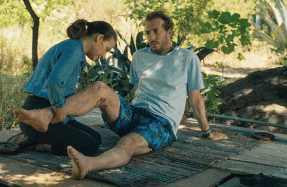t’s that time again. Over the last two decades in these pages I’ve spent way too much time (at great personal anguish) trying to come to grips with the experience of the Festival de Cannes even if by this point in the history of film journalism, a few weeks after the fact everything anyone could say about Cannes has already been said.. So, I did not take my opportunity to discuss the small number of other favourites, either because they will be covered in future issues, like Kelly Reichardt’s personal art-school dramedy , or because other writers took the lead and agreed to conduct interviews with their filmmakers, in particular, David Cronenberg’s return to the Cronenbergian and Lucien Castaing-Taylor and Véréna Paravel’s corporeal crash , the latter of which—unlike the former—in no way posits that surgery is the new sex.
Editor’s Note
Jun 27, 2022
2 minutes
You’re reading a preview, subscribe to read more.
Start your free 30 days





